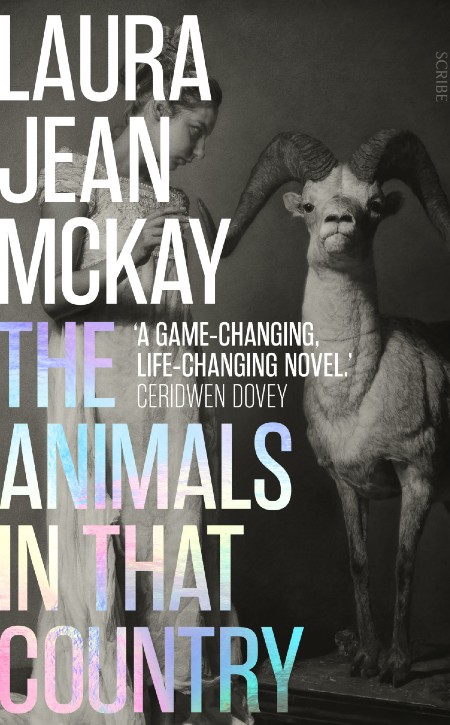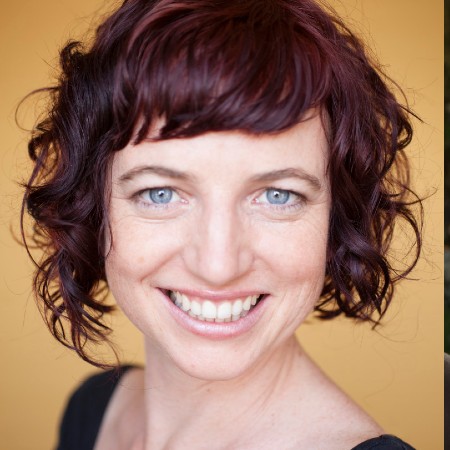
Ladies and gentlemen of the pandemic current – even Doctor Dolittle has taken an apocalyptic turn, something that shouldn’t surprise in an age when horror seems to be writ large on just about every part of the human experience.
Granted, Hugh Lofting, who penned the Doctor Dolittle series, saw his fair share of terror and the darker part of the human soul in the trenches of World War One, but very little of that made its way into his warmhearted and thoughtful books which stressed the great and wise benefits of being in communion with the natural world.
But in Laura Jean McKay’s disturbingly but profoundly imaginative take on human and animals starting up a long overdue conversation, The Animals in That Country, any semblance of warm-and-fuzzy bonhomie between Homo Sapiens and the animals, birds, insects and marine animals they ostensibly share the planet with has gone out the semi end of the world window.
In this brave, new, Zooflu-enabled world, people begin getting sick with a respiratory infection that only lasts a day or so but leaves everyone who gets infected with an unnerving ability to speak to their pets, wild animals, fishes and insects.
Some people, like foul-mouthed, near-alcoholic Jean Bennett, the protagonist in The Animals in That Country, and her granddaughter Kimberly, both of whom live in an outback wildlife park populated by wallabies, dingoes, native birds and reptiles, are somewhat looking forward to it.
After all, they love animals and the idea of being able to talk to them sounds like a dream come true.
“I [Jean] shuffle my feet out further. Mind glazing over in the friendly fog where nothing good comes or goes or speaks to me. This is the way you get through the animal apocalypse — stay drunk and smoke durries. I was doing it right all along, never knew it.” (P. 107)
But when the park’s quarantine is breached – all the zoos and wildlife parks around the country have, for obvious reasons, pulled up the drawbridges and shut the newly animal-obsessed world out – and the people charged with protecting the animals, chief among them Jean’s ex-daughter-in-law and current boss Angela, fall ill, any glittering hope that talking to the animals would be some Doctor Dolittlian romp through the bush quickly falling prey to madness-inducing reality.
In short, exotic and exciting though it sounds, being able to hear what every animal, bird, insect and fish is saying, in language that is often cryptically poetic – McKay beautifully portrays the language of animals as a few steps removed form our own, given they don’t and can’t think like us and have their own way of seeing the world – starts sending large numbers of people mad, unable to cope with the unceasing input of voices without number never shutting up.
Jean isn’t affected to that extent, displaying an ability along with Kimberly to understand what the animals are saying beyond the marvellously obtuse language, but her son Lee, always a free and troubled spirit is, and when he abducts his daughter one day to go down south and commune with the whales, she feels compelled to go after him and rescue the two people who matter the most to her in the world.
It is not, as you might expect in a world that is not only fraying at the edges but fraying in spectacularly apocalyptic fashion, an easy journey but Jean has one important companion by her side, the female dingo of the park’s pack, Sue, who turns out to be an empathetic and knowledgeable soul and a dab hand at being a natural GPS conduit.

It is the weirdest and wackiest road trip you will ever go on, and there are times when you think it’s a little too over the top and balmy, but McKay is supremely talented in her ability to make an outrageously bizarre premise not simply seem possible but profoundly moving and intensely meaningful.
As she heads out on her mission of mercy – the word is that the communing with whales is not as rose-coloured wonderful and back to primal nature as it sounds – Jean is forced to confront a great deal about her life, one which has been marked by dissension with just about everyone she knows thanks largely to her inability to stomach the social bullshit that keeps our society happily humming along (well, on the surface anyway).
But the world has gone to the dogs, quite literally – and the cats and the magpies and the snakes and mosquitoes – and all the social niceties that were a hindrance to Jean have gone as south as the whale communing, and so Jean, who is actually one of the most fiercely grounded and warm people you will meet in this or any book, is totally and completely in her element.
All that matters is finding Kimberly and if that means airing some exceedingly dirty laundry with ex-husband Graham and ex-daughter-in-law Angela, and having some brief connections with a host of animal-addled strangers along the way, then so be it.
The real star of the show is in many ways Sue who reacts in a very animalistic way but also, and this is important in a world retreating into sometime violence and fundamentalist belief, in ways that are possibly more human the people around her.
“Drunken laughter from the pub on the corner. They’re celebrating the whole world up there. And here I’ve lost my babies, with no one to say don’t shoot yourself, Jeanie. Don’t chuck yourself back in the ocean. Don’t take a drill to your skull and forget to stop.” (P. 228)
Certainly, Jeans appreciates her companionship, finding in Sue the perfect friend, someone who speaks their mind, in a beguilingly poetic manner of course, but who is loyal and true and flawed too.
The bond that develops between these two outlasts attempts by other survivors to kill Sue off – there is a mania among many people to seal themselves off from the natural world completely and if that means killing all the animals then so be it – to persuade Jean to stay put in isolated petrol stations and with religious lunatics and a looming cure which Jean begins to suspect may not be what she wants after all.
The Animals in That Country is a brilliantly bold and clever novel, one that takes a deep dive into the oft-visited ground of the apocalypse in a way that is groundbreakingly different and wholly original.
What initially feels like an out there premise soon feels innately grounded and true as McKay explores the many good and often bad ways in which humanity handles calamity and a rapid degradation of the established order, and how connections of any kind, and yes, even to the animals we can now understand, is profoundly and everlastingly more important than anything else, especially in a world which is both closer and further apart than ever before (much like the effect COVID-19 has had throughout 2020).